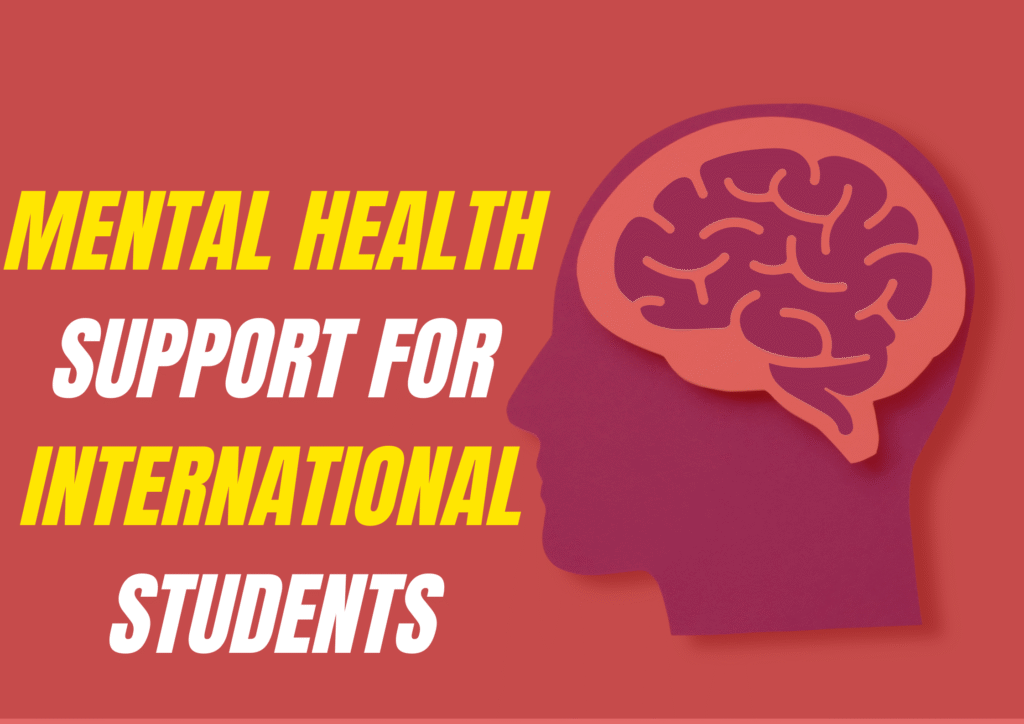The mental health of international students remains a critical area requiring dedicated support systems and resources in 2025. With academic pressure, cultural adjustments, financial strains, and often isolation, international students face unique challenges that increase their risk of anxiety, depression, and other mental health concerns. Understanding and improving mental health support for international students is essential to ensure their success, wellbeing, and overall experience abroad.
Table of Contents
Why Mental Health Support for International Students Matters
Studying abroad brings wonderful opportunities but also emotional and psychological strain. Research shows elevated rates of depression, anxiety, and loneliness among international students worldwide. The barriers they face include:
- Cultural stigma around mental health in their home countries
- Language barriers impeding open communication
- Adjustment-related stress: homesickness, culture shock, and social isolation
- Financial pressures and academic workload
- Limited awareness or access to available mental health resources
Without adequate mental health support for international students, these struggles can harm academic performance, social integration, and personal wellbeing.speakingofmedicine.plos+2
Common Mental Health Challenges Faced by International Students
International students frequently encounter:
- Stress and anxiety related to studying in an unfamiliar environment
- Depression and loneliness, exacerbated by separation from family and friends
- Culture shock and homesickness, particularly during initial months abroad
- Financial hardship anxiety, due to tuition and living expenses
- Language difficulties causing communication stress
- Discrimination and social exclusion impacting mental health and belongingness
Studies indicate that younger students (21-30 years), females, and unmarried students experience higher vulnerability to mental health problems.pmc.ncbi.nlm.nih
University Mental Health Services Tailored for International Students
Many universities have expanded accessible and culturally sensitive mental health support for international students in 2025 through:
- Multilingual counseling services allowing students to communicate comfortably in their native languages.uninist+1
- Online and virtual counseling sessions providing flexibility beyond campus hours or location.talktoangel+1
- Dedicated mental health pathways and workshops, such as King’s College London’s International Student Mental Health Pathway, featuring group therapy, helplines, and mental wellness events.uninist
- Faculty and peer involvement for identification, early intervention, and ongoing student support.pmc.ncbi.nlm.nih
Such programs recognize the need to tailor counseling approaches toward cultural background, stigma concerns, and unique stressors experienced by international students.
Peer Support Groups and Student Communities
Peer support networks have become invaluable components of comprehensive mental health support for international students. These groups:
- Offer a safe, understanding space to share experiences and coping strategies
- Help mitigate feelings of isolation through multicultural community bonding
- Train student health ambassadors to approach mental health stigma and facilitate timely referrals
- Organize regular meetups and wellness activities that promote belonging and stress relief.talktoangel+1
Connecting with students facing similar challenges reduces mental health burdens and fosters resilience.
General Tips for International Students to Manage Mental Health
International students can proactively support their wellbeing by:
- Seeking professional counseling early when stress or mood changes occur
- Joining social clubs, sports teams, or local community activities to build support networks.usnews
- Practicing mindfulness techniques such as meditation or yoga
- Maintaining regular communication with family and friends back home
- Managing academic workload with effective time management and stress reduction strategies
- Being aware of and utilizing campus and local mental health resources
Recognizing when to ask for help and utilizing support systems are critical in navigating mental health challenges while abroad.
Cultural Sensitivity in Delivering Mental Health Support
Effective mental health support for international students depends heavily on cultural competency by counseling professionals. This includes:
- Awareness of diverse cultural attitudes toward mental illness and help-seeking
- Tailoring services to respect religious beliefs and social norms
- Maintaining confidentiality particularly sensitively to international students’ concerns
- Integrating multiple counseling techniques suited to varied backgrounds.pmc.ncbi.nlm.nih
Universities investing in cultural competence training for mental health staff improve accessibility and trust for international student populations.
Financial and Institutional Support Strategies
Institutions can alleviate mental health risks by:
- Providing transparent information about financial aid and budgeting help to reduce stress
- Establishing safe channels for students to report discrimination or harassment
- Creating inclusive campus environments that celebrate diversity and foster belonging
- Partnering with healthcare providers for culturally and linguistically appropriate services.education+1
Holistic wellness approaches are more successful in improving outcomes for international student mental health.
Technological Innovations Enhancing Mental Health Access
Emerging solutions complement traditional support with:
- 24/7 mental health helplines with multilingual counselors
- Mobile apps offering anonymous self-screening, mindfulness exercises, and crisis support
- Virtual support groups and online workshops tailored for international students globally
- Teletherapy expanding reach beyond campus geographic limitations with flexible scheduling.talktoangel
Tech-based mental health platforms play a growing role in bridging gaps in resources for mobile international students.
Universities Excelling in Mental Health Support for International Students
Several global institutions lead in innovative mental health programs for international learners:
| University | Country | Key Offerings |
|---|---|---|
| King’s College London | UK | International Student Mental Health Pathways, Peer support, Multilingual helplineuninist |
| University of Maryland | USA | Diverse counseling staff, Ethnic background matchingusnews |
| University of Melbourne | Australia | Online and campus counseling, Wellness workshops |
| Texas Tech University | USA | Mindfulness resources web pages, Tailored student outreachusnews |
| Cornell University | USA | Comprehensive health resource pages for international studentsusnews |
Frequently Asked Questions (FAQ)
Q1: What are the main mental health challenges for international students?
A1: Stress, anxiety, loneliness, culture shock, financial pressure, language barriers, and discrimination are common issues faced by international students.frontiersin+2
Q2: How can international students access mental health support?
A2: Universities offer counseling services (in-person/virtual), peer support groups, helplines, wellness workshops, and culturally sensitive resources.usnews+2
Q3: Are mental health services confidential for international students?
A3: Yes, reputable institutions prioritize confidentiality to build trust and encourage students to seek help without fear of stigma or repercussions.pmc.ncbi.nlm.nih
Q4: Do cultural differences affect mental health care for international students?
A4: Absolutely. Counselors trained in cultural sensitivity provide more effective support by respecting values and overcoming stigma barriers.pmc.ncbi.nlm.nih
Q5: What can institutions do to improve mental health support for international students?
A5: Provide multicultural counseling, early intervention programs, safe spaces, financial aid clarity, anti-discrimination policies, and technology-enabled services.frontiersin+1

